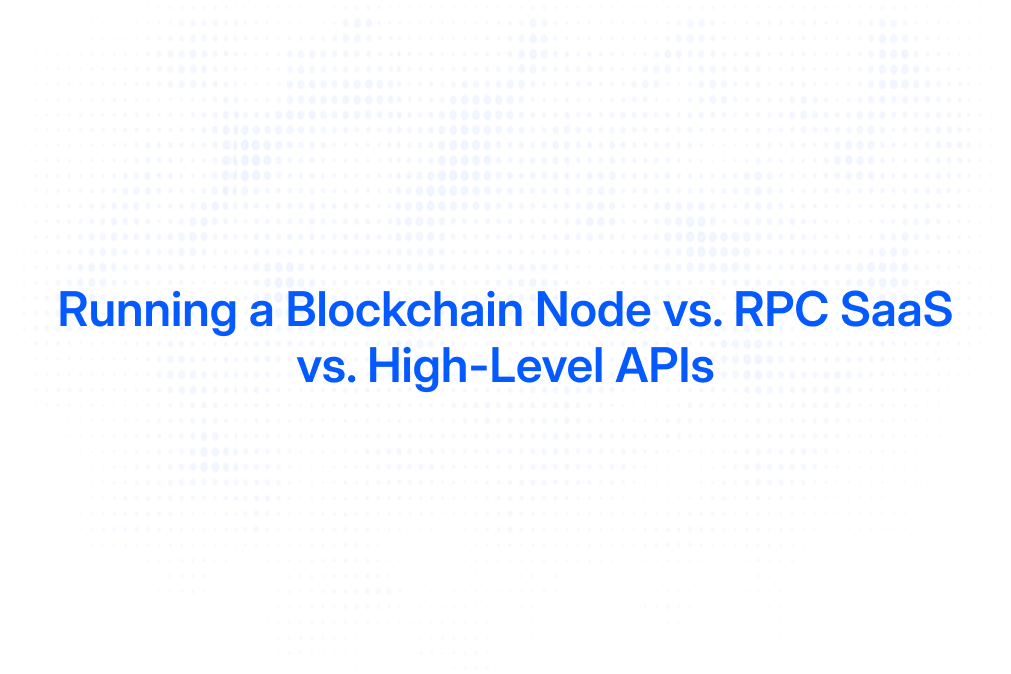Multi-Cloud RPC Routing: A New Standard for Web3 Reliability
As Web3 applications continue to grow in complexity and user base, the demand for robust, scalable, and highly available blockchain infrastructure has never been greater. At the heart of this infrastructure lies Remote Procedure Call (RPC) endpoints, which serve as the critical bridge between decentralized networks and the applications built on top of them. Traditional single-provider RPC setups often struggle with downtime, latency, and cost inefficiencies, prompting a shift toward multi-cloud RPC routing—a strategy that leverages multiple cloud providers and RPC endpoints to deliver unprecedented reliability and performance.
Understanding Multi-Cloud RPC Routing
Multi-cloud RPC routing refers to the practice of distributing blockchain RPC requests across multiple cloud environments and RPC providers. Instead of relying on a single RPC endpoint, Web3 applications dynamically route traffic through a network of providers hosted on different cloud platforms. This approach offers redundancy, load balancing, and failover capabilities that are essential for maintaining uptime and reducing latency in decentralized applications (dApps).
In the context of blockchain infrastructure, multi-cloud RPC routing is often implemented using a Multi-Cloud Proxy (MCP), which orchestrates API calls across various providers and regions. This proxy intelligently selects the optimal RPC endpoint based on factors such as current load, geographic proximity, and provider health, ensuring that requests are handled efficiently and reliably.
Why Multi-Cloud Matters for Blockchain
Blockchain networks are inherently distributed, but the infrastructure that connects users to these networks is often centralized through RPC providers. Single-provider dependency introduces significant risks, including service outages, throttling, and performance bottlenecks. Multi-cloud RPC routing mitigates these risks by decentralizing the infrastructure layer itself, aligning the backend architecture with the decentralized ethos of Web3.
Moreover, multi-cloud strategies help address regulatory and compliance concerns by enabling data distribution across different jurisdictions. This is especially critical for global applications that must adhere to varying data sovereignty laws.
Key Benefits of Multi-Cloud RPC Routing
1. Enhanced Reliability and Uptime
One of the most compelling advantages of multi-cloud RPC routing is the dramatic improvement in service reliability. By leveraging multiple providers, applications can automatically failover to a healthy endpoint if one provider experiences downtime or degraded performance. This redundancy ensures continuous availability, which is crucial for time-sensitive blockchain operations such as DeFi transactions, NFT minting, and on-chain gaming.
Studies show that RPC outages can cost blockchain projects significant financial losses and user trust. Multi-cloud routing reduces the risk of these outages by eliminating single points of failure. For example, if an Ethereum RPC provider faces an outage, traffic can be rerouted seamlessly to an alternative provider hosted on a different cloud, maintaining uninterrupted service.
2. Reduced Latency Through Multi-Region Routing
Latency is a critical factor in user experience and transaction speed. Multi-cloud RPC routing often includes multi-region capabilities, routing requests to the nearest or fastest RPC endpoint geographically. This proximity-based routing minimizes network hops and reduces response times, delivering faster transaction confirmations and smoother dApp interactions.
For instance, a user in Asia accessing a dApp can be routed to an RPC provider hosted in a nearby data center in Singapore or Tokyo, rather than a distant provider in North America. This localized routing is especially beneficial for high-frequency trading platforms and real-time gaming applications.
3. Cost Optimization and Scalability
Multi-cloud RPC routing also offers significant cost benefits. By distributing requests across multiple providers, applications can avoid over-reliance on expensive single providers and take advantage of competitive pricing. Additionally, auto-routing algorithms can prioritize cheaper endpoints during low traffic periods and shift to premium providers when demand spikes, optimizing overall RPC expenditure.
Scalability is another major advantage. As blockchain applications scale to millions of API calls per day, a single RPC provider may struggle to keep up or impose restrictive rate limits. Multi-cloud routing aggregates capacity from multiple providers, enabling seamless scaling without compromising performance or breaking the budget.
How Multi-Cloud RPC Routing Works in Practice
Multi-Provider Aggregation and Intelligent Routing
At the core of multi-cloud RPC routing is the aggregation of multiple RPC providers into a unified endpoint. This aggregation is typically managed by an RPC router or proxy service that monitors the health and performance of each provider in real time. Based on this data, the router dynamically selects the best provider for each request, balancing load and ensuring failover readiness.
For example, if QuickNode, Alchemy, and Infura are all integrated into a multi-cloud routing layer, the system can distribute requests intelligently—sending some to QuickNode for speed, others to Alchemy for reliability, and falling back to Infura if either of the first two experiences issues.
Integration with Multi-Cloud Proxy (MCP) Technology
Multi-Cloud Proxy (MCP) technology plays a pivotal role in enabling multi-cloud RPC routing. MCP acts as an intermediary layer that abstracts the complexity of managing multiple cloud providers and RPC endpoints. It provides API orchestration capabilities, allowing developers to scale blockchain APIs without manual intervention.
MCP solutions typically support advanced features such as request caching, rate limiting, and analytics, giving teams granular control over their RPC traffic. This orchestration is vital for maintaining consistent performance and reliability, especially as Web3 applications grow and evolve.
Challenges and Considerations
Complexity of Implementation
While multi-cloud RPC routing offers numerous benefits, it also introduces additional complexity. Managing multiple providers requires sophisticated routing logic, health checks, and failover mechanisms. Developers must ensure that their routing layer handles edge cases gracefully and maintains consistency in blockchain data responses.
Fortunately, many modern RPC aggregators and proxy services provide turnkey solutions that abstract this complexity, enabling teams to adopt multi-cloud routing without extensive engineering overhead.
Data Consistency and Synchronization
Another challenge is ensuring data consistency across different RPC providers. Since providers may index blockchain data at slightly different speeds or have varying cache states, applications need to handle potential discrepancies gracefully. This is especially important for applications that rely on real-time data accuracy, such as decentralized exchanges and lending platforms.
Security and Compliance
Multi-cloud setups must also address security concerns, including secure API key management, encryption of RPC traffic, and compliance with data privacy regulations. Choosing reputable RPC providers and cloud platforms with strong security postures is essential to safeguarding user data and transaction integrity.
The Future of Web3 Infrastructure: Embracing Multi-Cloud RPC Routing
As Web3 matures, the infrastructure supporting it must evolve to meet increasing demands for reliability, speed, and cost efficiency. Multi-cloud RPC routing represents a new standard in blockchain infrastructure, aligning with the decentralized principles of Web3 while leveraging the power of modern cloud computing.
Industry trends indicate that multi-cloud strategies will become the norm rather than the exception. Leading blockchain projects and infrastructure providers are already adopting multi-cloud RPC routing to deliver superior user experiences and operational resilience.
Looking ahead, innovations such as AI-driven routing algorithms, deeper integration with decentralized storage, and enhanced API orchestration will further refine multi-cloud RPC solutions. These advancements will empower developers to build scalable, reliable, and cost-effective Web3 applications that can thrive in a competitive and rapidly evolving ecosystem.
Conclusion
Multi-cloud RPC routing is transforming the way Web3 applications interact with blockchain networks. By distributing RPC traffic across multiple cloud providers and regions, it addresses critical challenges such as downtime, latency, and cost inefficiencies. This approach not only enhances reliability and performance but also aligns infrastructure design with the decentralized vision of blockchain technology.
For developers and organizations building the next generation of decentralized applications, embracing multi-cloud RPC routing is no longer just an option—it is becoming a necessity. As the Web3 landscape continues to expand, multi-cloud RPC routing will play a central role in ensuring that blockchain infrastructure remains robust, scalable, and ready for the demands of tomorrow.
Ready to elevate your Web3 development experience? Start building with Uniblock today and join over 2,000 developers who are harnessing the power of our Web3 infrastructure orchestration platform. With Uniblock, you'll gain access to a single API endpoint that intelligently auto-routes your RPC, API, and webhook traffic across multiple providers. Say goodbye to downtime, enjoy reduced latency, and cut down on infrastructure costs while building dApps, tooling, or analytics. Embrace the future of blockchain infrastructure with Uniblock and scale your projects with confidence.
.svg)


.png)



